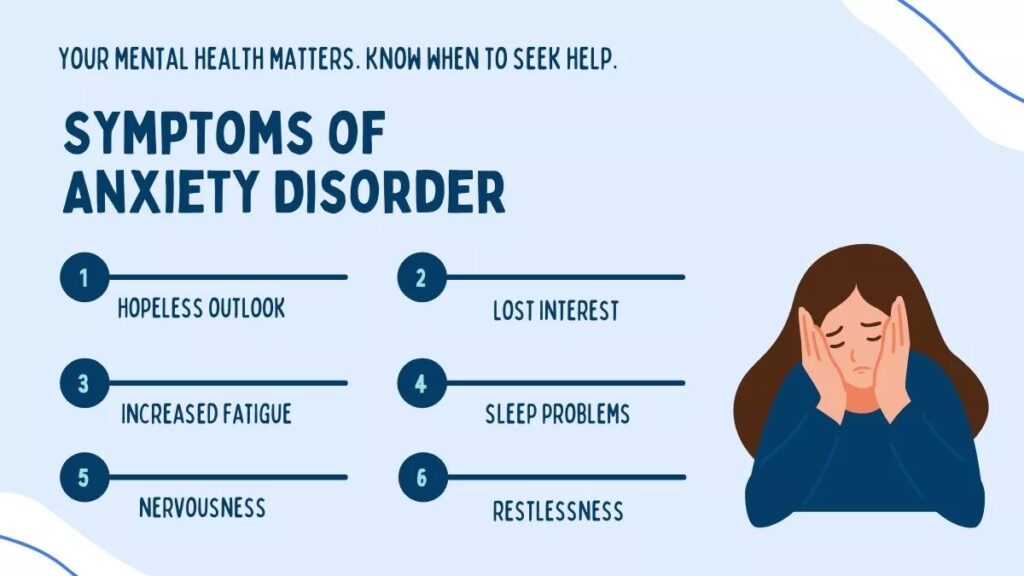How to Help Someone with Anxiety: Dos and Don’ts

Understanding Anxiety: A Key to Effective Support

Understanding anxiety is crucial when it comes to providing effective support to those who are experiencing it. Anxiety disorders are not simply a result of stress or nervousness; they are serious mental health conditions that can significantly impact a person’s daily life. By gaining a deeper understanding of anxiety and its complexities, we can take steps towards creating a supportive environment that promotes healing and growth.
Anxiety can manifest in various ways, including excessive worry, restlessness, irritability, difficulty concentrating, and physical symptoms such as rapid heartbeat and shortness of breath. It is essential to recognize that anxiety is not a choice or a weakness; it is a genuine condition that affects individuals from all walks of life. By educating ourselves on the different anxiety disorders and the ways in which they can manifest, we can better empathize with and validate the experiences of those living with anxiety. Armed with this understanding, we can provide the necessary support and encouragement to help individuals navigate their anxiety and find effective coping strategies.
Recognizing the Signs of Anxiety in Others

Recognizing the signs of anxiety in others can be an essential step in providing the support they need. Anxiety can manifest differently in each individual, but there are common signs to be aware of. One of the most noticeable signs is excessive worry or fear that seems irrational or out of proportion to the situation. It’s important to pay attention to physical symptoms as well, such as restlessness, fatigue, muscle tension, and difficulty concentrating. Additionally, someone experiencing anxiety might exhibit changes in their behavior, such as avoiding certain situations or becoming easily startled.
However, it’s crucial to remember that not everyone with anxiety will display the same signs. Some individuals may internalize their anxiety and appear calm on the surface, while others may experience panic attacks or breakdowns. It’s essential to approach the situation with sensitivity and empathy, as individuals with anxiety may already feel overwhelmed or dismissed. By recognizing these signs, we can begin to create a supportive environment and provide the necessary assistance for those struggling with anxiety.
Creating a Safe and Non-Judgmental Environment

Creating a safe and non-judgmental environment is crucial when supporting individuals experiencing anxiety. By fostering an atmosphere that is free from judgment, we can help alleviate feelings of shame, embarrassment, and stigma that often accompany anxiety disorders.
One way to create such an environment is by offering empathy and understanding. Validating the individual’s feelings and experiences can go a long way in making them feel heard and accepted. Instead of dismissing their concerns or belittling their worries, it is important to acknowledge the impact anxiety has on their daily life. This could be done by saying something like, “I understand that anxiety can be debilitating and overwhelming. I’m here to support you through it.”
Additionally, actively listening to the individual’s concerns and giving them space to express themselves without interruption or judgment can provide a sense of safety. Encouraging open communication allows them to share their anxieties and fears without fear of criticism or scrutiny. By practicing active listening techniques, such as maintaining eye contact, nodding to show understanding, and asking clarifying questions, we demonstrate our genuine interest in their well-being.
Creating a physical environment that promotes comfort and calmness can also contribute to a safe space. This could involve ensuring privacy during conversations, providing comfortable seating, and minimizing distractions. By creating a soothing atmosphere, individuals experiencing anxiety may feel more at ease and comfortable discussing their feelings and concerns.
In conclusion, creating a safe and non-judgmental environment is essential when supporting individuals with anxiety. By offering empathy, actively listening, and creating a physically calming space, we can foster an environment that encourages open communication and promotes emotional well-being.
Educating Yourself on Anxiety Disorders
Understanding anxiety disorders is crucial in providing effective support to those who are struggling. Educating yourself on anxiety disorders will not only increase your knowledge and awareness, but also enable you to provide accurate and informed assistance to individuals experiencing anxiety. Anxiety disorders are a group of mental health conditions characterized by excessive worry, fear, and unease that can significantly impact a person’s daily life.
Anxiety disorders are more common than you may think, affecting approximately 40 million adults in the United States alone. This statistic emphasizes the importance of acquiring a comprehensive understanding of these disorders. By educating yourself, you’ll be able to recognize the signs and symptoms of anxiety in others, which can often be subtle and easily overlooked.
Encouraging Open Communication and Active Listening
Encouraging open communication and active listening is a crucial aspect of providing effective support for individuals experiencing anxiety. By creating a safe and non-judgmental environment, we can help individuals feel comfortable sharing their thoughts and emotions freely.
One way to foster open communication is by actively demonstrating empathetic listening. This involves giving our full attention to the person, maintaining eye contact, and showing genuine interest in what they are saying. Avoid interrupting or rushing them, as this can make them feel unheard or dismissed. Instead, allow them the space and time to express themselves fully, without imposing our own opinions or judgments. Active listening also involves reflecting back on what has been shared, paraphrasing or summarizing to ensure understanding. By doing so, we validate their experiences and show that we genuinely care about their well-being.
Certainly! Here’s a table summarizing the practices of encouraging open communication and active listening:
| Encouraging Open Communication and Active Listening | Description |
|---|---|
| Open Communication | Expressing Thoughts and Feelings: Encourages open sharing of thoughts, feelings, and perspectives. |
| Honesty and Transparency: Promotes sincerity and transparency, building trust in communication. | |
| Active Listening | Focused Attention: Involves giving undivided attention to the speaker, demonstrating genuine interest. |
| Reflective Responses: Responding with paraphrasing or summarizing to show understanding of the speaker. | |
| Creating a Safe Environment | Non-Judgmental Atmosphere: Establishes a safe space where individuals feel free from judgment. |
| Respectful Communication: Encourages language that is respectful and considerate for positive interactions. | |
| Empathy and Understanding | Putting Oneself in Others’ Shoes: Encourages understanding by considering the perspective of others. |
| Validation of Emotions: Acknowledges and validates the emotions expressed by others during communication. |
Offering Emotional Support and Validation
When it comes to supporting someone with anxiety, offering emotional support and validation can play a crucial role in their journey towards recovery. Anxiety can be an isolating experience, leaving individuals feeling misunderstood and overwhelmed. Therefore, providing a safe space for them to express their emotions and validating their feelings can make a significant difference in their well-being.
One way to offer emotional support is by actively listening to their concerns without judgment. Allow them to speak openly and honestly about their fears and worries, and resist the urge to interrupt or offer immediate solutions. Instead, validate their experiences by acknowledging the validity of their emotions. You can say something like, “I can understand why you feel anxious about this situation. It must be really challenging for you.” This simple act of validation can help them feel heard and understood, fostering a sense of connection and empathy.
Assisting with Practical Tasks and Daily Responsibilities
Assisting with practical tasks and daily responsibilities can play a crucial role in providing support to individuals experiencing anxiety. Often, anxiety can make even the simplest of tasks feel overwhelming and unmanageable. By offering a helping hand, you can alleviate some of the stress associated with these responsibilities and contribute to a sense of stability and well-being.
One way to assist with practical tasks is by breaking them down into smaller, more manageable steps. This can help to reduce the feeling of being overwhelmed and allow the individual to focus on one task at a time. Offering guidance and support throughout the process can also provide reassurance and help build confidence. Whether it’s helping with household chores, running errands, or managing paperwork, your assistance can make a significant difference in their daily lives. By stepping in when needed and offering practical support, you can help lessen the burden and enable individuals to better cope with their anxiety.
Encouraging Healthy Lifestyle Habits
Encouraging healthy lifestyle habits is essential in supporting individuals with anxiety. Research has shown that there is a strong connection between physical health and mental well-being. Engaging in regular physical activity not only helps to reduce symptoms of anxiety but also promotes increased serotonin production in the brain, which is known to improve mood. Encouraging individuals with anxiety to engage in activities they enjoy, such as yoga, swimming, or walking, can be an effective way to incorporate exercise into their daily routine.
In addition to exercise, nutrition plays a crucial role in maintaining a healthy lifestyle. It is important to educate individuals with anxiety on the impact of certain foods and drinks on their mental well-being. For example, caffeine and excessive sugar intake can exacerbate symptoms of anxiety, while foods rich in omega-3 fatty acids, such as salmon and walnuts, have been shown to have a calming effect on the brain. By encouraging a balanced diet and providing information on the benefits of certain foods, we can empower individuals with anxiety to make healthy choices that support their overall well-being.
Promoting Relaxation Techniques and Stress Management
Promoting relaxation techniques and stress management is crucial in providing support for individuals experiencing anxiety. By understanding and implementing effective methods to alleviate stress, you can help individuals regain control over their emotional well-being.
One technique that has proven to be effective in reducing stress is deep breathing exercises. Encourage individuals to take slow, deep breaths, inhaling through the nose and exhaling through the mouth. This not only helps to relax the body but also promotes a sense of mindfulness and focus, allowing for a temporary escape from anxious thoughts.
Another beneficial method is progressive muscle relaxation. By guiding individuals to tense and then release each muscle group in their body, they can experience a deep sense of relaxation and relief from tension. This technique not only helps to reduce stress but also improves overall physical well-being.
Incorporating stress-reducing activities into daily routines can also be beneficial. Activities such as yoga or tai chi, for example, promote relaxation through gentle movements and focused attention. Additionally, engaging in hobbies or activities that individuals enjoy can provide a much-needed distraction from anxiety and stress.
It is important to note that promoting relaxation techniques and stress management should be done in conjunction with other forms of support, such as therapy or medication, for individuals with severe anxiety. By offering a comprehensive approach to anxiety management, you can help individuals take proactive steps towards improving their mental well-being.
Respecting Boundaries and Personal Space
Respecting boundaries and personal space is a critical aspect of providing effective support to individuals with anxiety. Understanding and honoring personal boundaries can help create a safe and comfortable environment, fostering trust and emotional well-being.
Everyone has unique needs when it comes to personal space, and it is important to recognize and respect these boundaries. Exhibiting sensitivity and awareness around physical proximity can go a long way in easing anxiety. Some individuals may prefer a greater distance, while others may appreciate a more hands-on approach. By recognizing and adapting to their comfort levels, we can help individuals feel respected and supported.
Maintaining awareness of emotional boundaries is equally crucial. While it’s natural to want to provide help and offer advice, it’s important to remember that each person experiences anxiety differently. Offering unsolicited advice or dismissing their feelings can invalidate their experiences and erode their trust. Instead, practicing active listening and empathy can enable individuals to express themselves freely and feel understood.
By respecting personal space and emotional boundaries, we can create an environment that empowers individuals living with anxiety to navigate their challenges with greater confidence and independence.
Avoiding Enabling Behaviors and Promoting Independence
Enabling behaviors can unintentionally prolong anxiety and prevent individuals from developing their own coping skills and independence. While it may be difficult to witness someone struggling with anxiety, it is important to avoid enabling behaviors that can inadvertently reinforce their anxiety and dependency on others.
One way to avoid enabling behaviors is to encourage individuals to take ownership of their anxiety and engage in self-help strategies. By empowering them to identify their triggers, understand their anxiety patterns, and develop coping mechanisms, they can gain a sense of control and develop their own self-reliance. It is crucial to provide support and guidance during this process, reinforcing the idea that they have the capability to manage their anxiety independently.
Additionally, promoting independence involves allowing individuals to face and confront their anxiety-provoking situations at their own pace. While it may be tempting to shield them from their fears or constantly intervene to reduce their discomfort, it is essential to trust in their ability to handle challenges independently. This can support the individual in building confidence and resilience, ultimately contributing to their long-term progress in managing anxiety.
Practicing Patience and Empathy
Practicing patience and empathy is essential when offering support to someone with anxiety. It is important to remember that anxiety can be challenging and overwhelming for the individual experiencing it, and patience is needed to provide them with the time and space they require. Rushing or pressuring them to “snap out of it” can intensify their anxiety and discourage them from seeking help or opening up. By showing patience, you are conveying that you are there for them, no matter how long it takes for them to feel comfortable and ready to talk.
Empathy plays a crucial role in understanding and relating to someone with anxiety. Putting yourself in their shoes and trying to grasp their emotions and experiences can significantly enhance your ability to support them effectively. Empathy allows you to validate their feelings and offer reassurance that they are not alone in their struggles. By demonstrating empathy, you create an environment of understanding, trust, and compassion, which can help alleviate feelings of isolation and contribute to their overall well-being. Remember, empathy is about listening attentively and showing genuine concern without judgment or trying to fix their problems.
Seeking Professional Help and Encouraging Treatment
Seeking professional help and encouraging treatment for anxiety disorders is crucial in ensuring long-term recovery and improved well-being. While providing support and understanding to someone experiencing anxiety is essential, it is equally important to recognize the limitations of our assistance. Professional mental health providers possess the expertise and specialized knowledge to diagnose and treat anxiety disorders effectively.
In seeking professional help, individuals can benefit from various treatment options tailored to their specific needs. This can include cognitive-behavioral therapy (CBT), which focuses on identifying and modifying negative thought patterns and behaviors associated with anxiety. Other therapies such as exposure therapy, mindfulness-based stress reduction (MBSR), and medication management may also be recommended by mental health professionals to alleviate anxiety symptoms.
Encouraging treatment can be done in several ways, such as reassuring individuals that seeking help is not a sign of weakness but rather a proactive step towards self-care. Providing information about available resources and mental health professionals in the area can also empower individuals to take the necessary steps towards treatment. Additionally, offering support and understanding during the process of seeking help can play a significant role in reducing stigma and fostering a supportive environment for those struggling with anxiety.
Supporting Self-Care and Self-Reflection
Self-care and self-reflection are crucial aspects of supporting individuals with anxiety. Encouraging individuals to prioritize their own well-being and engage in activities that promote relaxation and self-care can make a significant difference in managing anxiety symptoms. Taking time for oneself allows for personal reflection and can aid in identifying triggers and coping strategies.
One way to support self-care is to help individuals establish a daily routine that includes activities they enjoy and find fulfilling. Whether it’s practicing mindfulness or engaging in physical exercise, these activities can help reduce stress and enhance overall well-being. Additionally, encouraging individuals to engage in self-reflection can promote a deeper understanding of their emotions, thoughts, and patterns of behavior. This self-awareness can empower individuals to identify their needs and make necessary changes in their lives to support their mental health.
By promoting self-care and self-reflection, individuals with anxiety can develop a stronger sense of self, enhance their ability to manage stress, and improve their overall mental well-being. It is important to emphasize the importance of self-care as an ongoing practice rather than a one-time solution, as it requires consistent effort and commitment. With support and guidance, individuals can cultivate a positive self-care routine that complements their unique needs and ultimately promotes long-term mental wellness.
Providing Long-Term Support and Encouragement
Long-term support and encouragement are essential when it comes to helping individuals with anxiety navigate their journey towards recovery. Keeping in mind that anxiety is a chronic condition that may require ongoing management, it is important to establish a support system that can provide consistent assistance and motivation to those in need.
One way to provide long-term support is by staying connected and checking in regularly. Regular communication can help individuals with anxiety feel valued, supported, and understood. It is important to actively listen to their concerns and experiences, offering empathy and reassurance. Showing genuine interest can foster a sense of trust and strengthen the bond between you and the person you are supporting.
Another aspect of long-term support is encouraging self-care practices. Help them develop healthy lifestyle habits that promote overall well-being, which can include regular exercise, a balanced diet, and sufficient sleep. Additionally, promote relaxation techniques and stress management strategies, such as deep breathing exercises, mindfulness, or engaging in hobbies that bring joy and relaxation. By emphasizing self-care, you are empowering individuals with anxiety to take an active role in their own well-being.
What are some common triggers for anxiety?
Common triggers for anxiety can vary from person to person, but some common triggers include stress, certain situations or environments, past traumatic experiences, or even certain medications or substances.
How can I support someone with anxiety without becoming overwhelmed myself?
It’s important to set boundaries and take care of your own mental health while supporting someone with anxiety. Make sure to prioritize self-care, seek support from others, and consider talking to a therapist or counselor for guidance on managing your own well-being.
Can anxiety be cured completely?
While anxiety disorders cannot be completely cured, they can be effectively managed with appropriate treatment and support. With the right strategies and techniques, individuals with anxiety can experience significant improvement in their symptoms and overall well-being.
What are some relaxation techniques that can help alleviate anxiety?
Some relaxation techniques that can help alleviate anxiety include deep breathing exercises, progressive muscle relaxation, mindfulness meditation, practicing yoga or tai chi, engaging in hobbies or activities that bring joy, and listening to calming music.
How can I encourage someone with anxiety to seek professional help?
It’s important to approach the topic of seeking professional help with empathy and understanding. Let the person know that seeking help is a sign of strength, and that a mental health professional can provide the necessary tools and support to manage their anxiety effectively.
How do I create a safe and non-judgmental environment for someone with anxiety?
Creating a safe and non-judgmental environment involves actively listening, being understanding and patient, refraining from criticism or judgment, and respecting their boundaries and personal space. It’s also important to avoid making assumptions or dismissing their feelings.
What role does exercise play in managing anxiety?
Regular exercise can help reduce anxiety by releasing endorphins, improving mood, and promoting overall well-being. Encouraging someone with anxiety to engage in physical activity can be beneficial for their mental health.
How can I educate myself more about anxiety disorders?
Educating yourself about anxiety disorders can involve reading reputable books and articles, attending workshops or seminars, listening to podcasts or TED talks on the topic, and seeking information from reliable sources such as mental health organizations or professionals.
How can I assist someone with anxiety in their daily responsibilities?
Assisting someone with anxiety in their daily responsibilities can involve offering practical help, such as assisting with household chores or errands, helping them with time management, or providing reminders and support to complete tasks.
What is the importance of encouraging open communication with someone experiencing anxiety?
Encouraging open communication with someone experiencing anxiety is crucial as it allows them to express their thoughts, fears, and concerns. It fosters a supportive environment and helps the person feel understood and validated, which can aid in their overall well-being.






